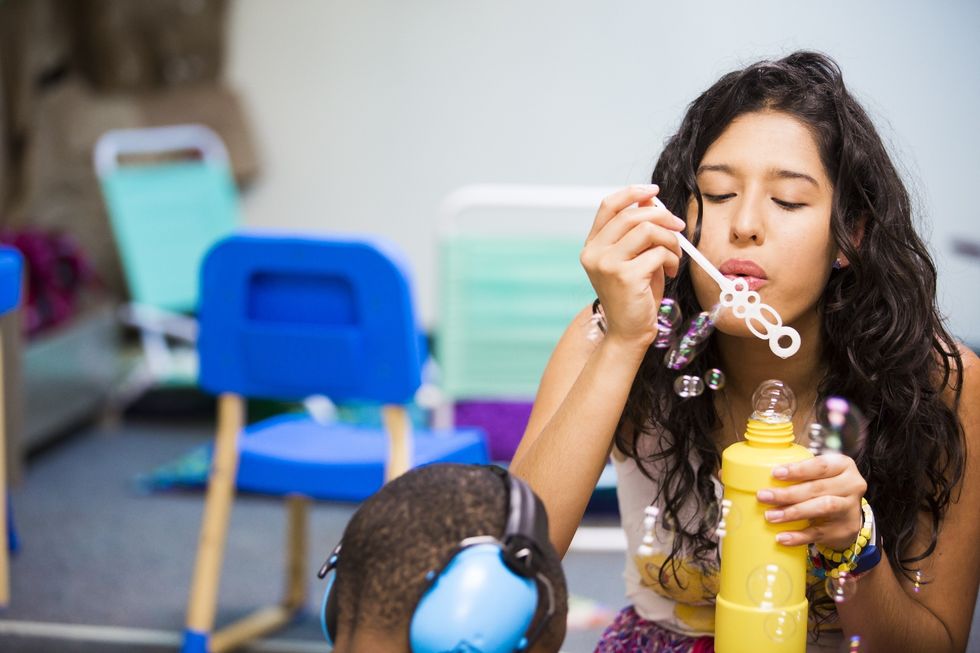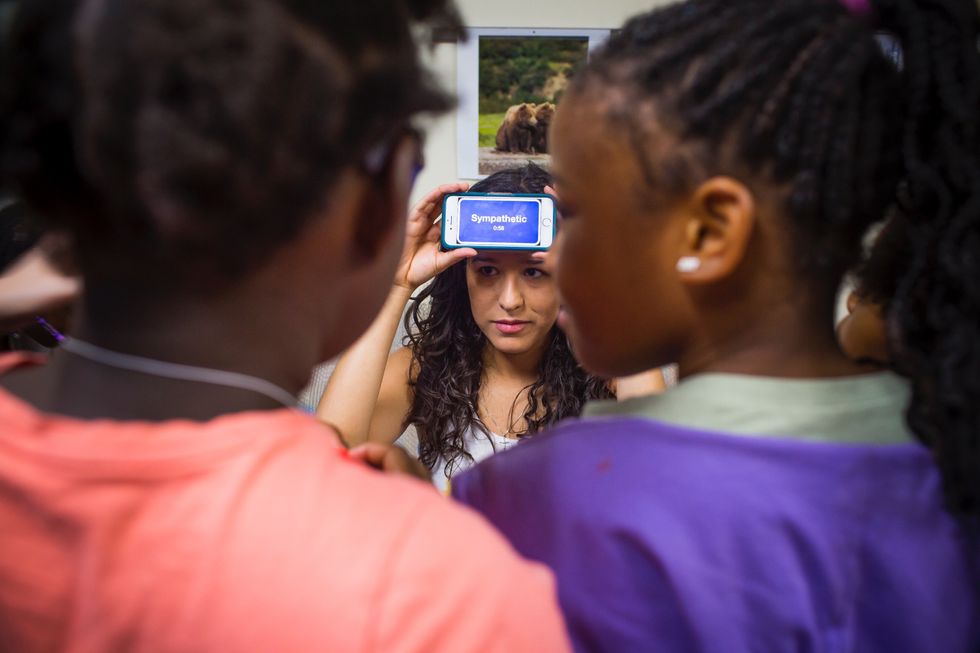Merriam-Webster defines compassion as the "sympathetic consciousness of others' distress together with a desire to alleviate it." After reflecting on the past 21 years of my life, I have come to the realization that compassion is more than that. Compassion, in my opinion, is the most powerful possession that anyone can have, and should want to have.
The truth about compassion, true compassion, is that it knows no boundaries. Compassion is not subjective because its very nature is objective and inclusive. You do not choose who you have compassion for. You have compassion for everyone. For the neighbor you do not know. For the person in sixth grade who pushed you down the slide. For the first love that broke your heart. For the person who you are thinking about right now and do not believe deserves your compassion. However, you need to understand what compassion encompasses before you can understand why everyone deserves it.
There are three components of compassion that many do not think about: understanding, forgiveness, and selflessness. Knowing what these are and how they make up compassion is not enough; you have to feel their presence. There is a certain harmony of mind and body that is hard to explain without sounding like you are preaching something. In order to not preach to you, I am going to do the next best thing—be vulnerable.
My parents have always taught me to be kind and respectful. I never really thought about compassion being something that was explicitly taught. I now realize that it cannot be taught, it is something that you practice. Not to sound too Aristotelian, but it is a virtue that you obtain through actions. Three actions to be more specific: learning, reflecting, and practicing.
I understand that my way of learning is a privilege because it involves attending a four-year university. I did not learn about the definition of compassion or a manual on how to be compassionate. I took classes that detailed people, actions, and practices, and they weren't described as compassionate. They simply were. I read about Bryan Stevenson and his fight for people in death row. I learned about the civil action suit in Woburn, Massachusetts about environmental pollution. I read about ethics and the human's subjective nature. I learned about a society's memory and how it is reflected in media and monuments. Yes, I learned about all of this because of my college education, but you don't need one to learn about the first component of compassion.
Everything that I learned allowed me to see that compassion requires understanding. This is the first level of compassion, the one that Merriam-Webster lists: understanding. You have to understand the humanity behind the individual. It is about understanding what makes that person who they are and reminding yourself that they are humans, just like yourself. It is listening and actually taking in their history, experiences, and circumstances. Understanding involves knowing that society is biased, and everybody has to deal with different obstacles, privileges, and vices. This component is not fully reached until you actually begin with the second.

In the summer of 2019, I interned with Atlanta's Women's Resource Center to End Domestic Violence. I was one of the teachers in their Camp PEACE program and worked with a group of seven and eight-year-olds. We implemented Emory's Social, Emotional, and Ethical (SEE) learning curriculum into their daily routines. Our focus was to help the kids understand compassion with themselves and others and self-regulate with resilience and trauma-informed practices. While I was working with these kids, I found myself reflecting on my own experiences and behaviors. Truth be told, I was not being fully compassionate towards myself. I was also holding onto grudges and emotions that were not healthy; they were blinding and preventing me from truly being compassionate with everyone. Upon reflection (second action), I stumbled upon forgiveness. In order to be compassionate, I needed to forgive myself and others. I needed to forgive everyone who had hurt me, including myself, and even those who I had never met. There are people who we have never had a conversation with, but we still hold something against them because of our own biases. It may be that we don't agree with their political ideas, societal values, religious thoughts, or their actions. I am not saying that by forgiving and letting go of all of that negativity, you are in any way condoning actions or thoughts. Compassion is about ending the cycle of hatred and negativity, it is about seeing the humanity of people. This leads us to the last and most difficult aspect of compassion.
Compassion involves actual practice. It is a lifestyle that is entangled with all other qualities of your life and personality. However, you cannot come by this without first understanding and reflecting and coming to a place of selflessness. This is the hardest thing to come by because it involves facing our biggest fears, biases, and values. Compassion is not about you, but it does involve letting go of your own emotions. You have to think about every single individual or type of person that you believe does not deserve your compassion. Once you have that list, you need to let go of it. No matter how horrible someone's actions or beliefs are, they are separate from the individual. Compassion is about seeing the individual and their humanity; it includes their mistakes and flaws. However, instead of holding and sending hatred and resentment, you see that they need compassion because they are full of hatred and cannot see the beauty of humanity. Once you can let go of your own emotions, you can focus on humanity, and that is selflessness.
Compassion is so valuable because it can lead to a prospering individual and society. Many of the problems that we have could be solved if everyone was compassionate. I understand what compassion is and it has truly changed the way I talk, act, and view everything. It is important for us to be compassionate with ourselves and others. Society needs that more than ever before. It does require you to be vulnerable and face your own biases, but you can only come out better. I have met some of the bravest seven-year-olds in the past year. Even if you only take one thing from this article, let it be what one of them said: "just be kind, nothing else matters."




















